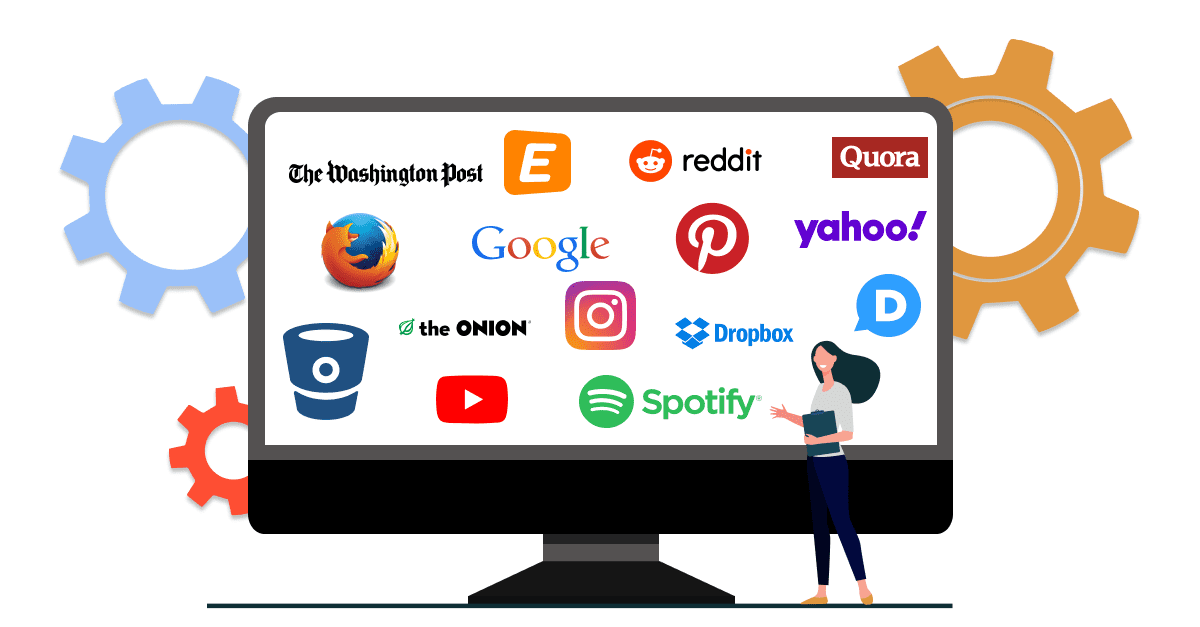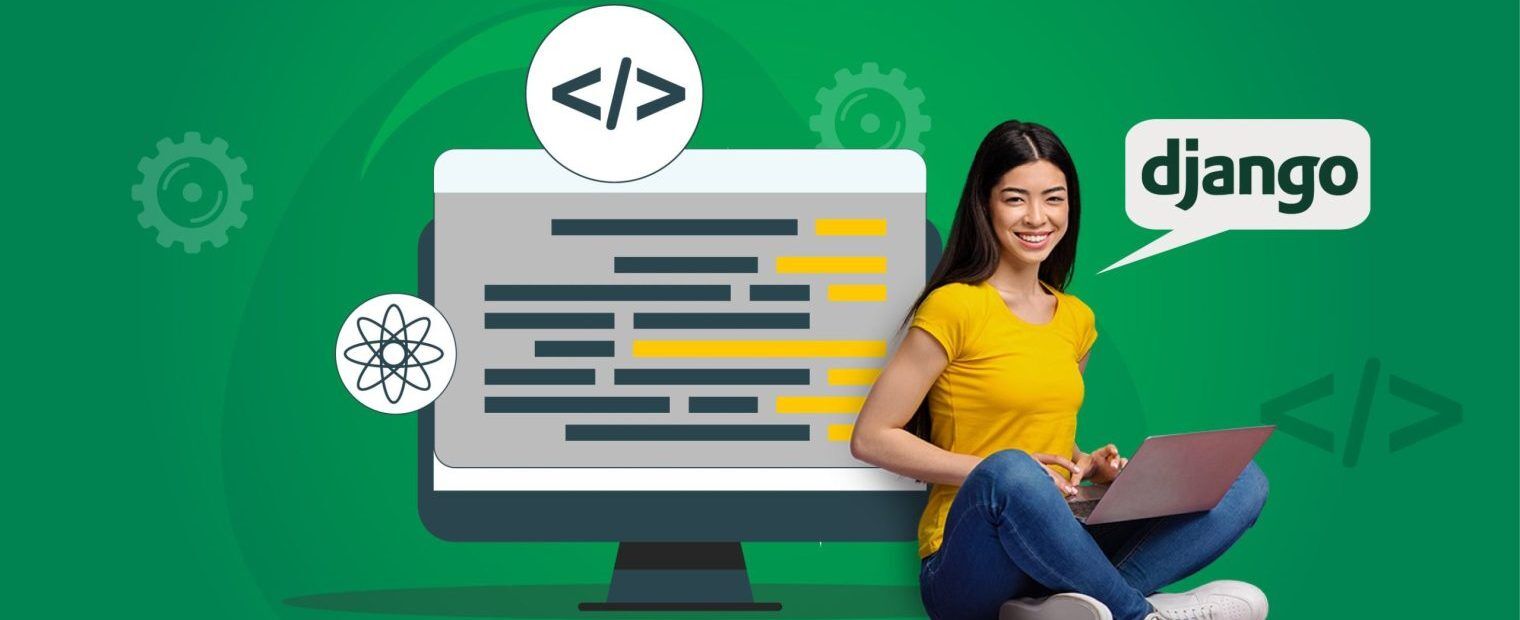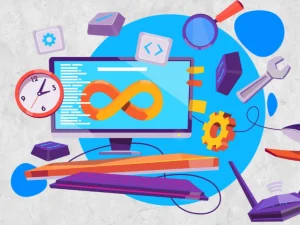Introduction
Django is a high-level Python web framework that encourages rapid development and clean, pragmatic design principles. Built by experienced developers, it takes care of much of the hassle and complexity of web development, allowing you to focus on writing your application without needing to reinvent the wheel. This framework is designed to help developers take applications from concept to completion as swiftly as possible.
It’s free and open source, which means it is accessible to everyone and benefits from a large community of contributors who continuously improve and update the framework. Django includes a robust set of features out of the box, such as an ORM (Object-Relational Mapping) for database interactions, a powerful admin interface, and built-in security features to protect against common web vulnerabilities. This makes it an excellent choice for both beginners and seasoned developers looking to build scalable and maintainable web applications efficiently.
Django web framework is meticulously designed for rapid development, enabling developers to take applications from initial concept to full completion with remarkable efficiency. This framework places a strong emphasis on security, providing built-in features that help developers avoid common security pitfalls such as SQL injection, cross-site scripting, and cross-site request forgery. As a result, it significantly reduces the risk of vulnerabilities in web applications.
Many of the busiest and most high-traffic websites rely on Django due to its inherent flexibility and scalability, which allow it to handle a wide range of web development needs, from simple projects to complex, large-scale applications. This adaptability makes it a preferred choice for developers who need a robust and reliable framework that can grow with their projects.
Moreover, Django is both free and open source, which means it is accessible to all developers regardless of their budget. The open-source nature of Django encourages a vibrant community of contributors who continuously improve and update the framework, ensuring it remains at the cutting edge of web development technology. This community support also provides a wealth of resources, tutorials, and third-party packages that can further enhance the development process.
Django web framework follows the model-template-views (MTV) pattern, which is a high-level architectural pattern designed to separate different aspects of a web application. This pattern distinctly separates data models (models), presentation logic (views), and templates for rendering HTML. The models are responsible for defining the structure of the data, including the fields and behaviors of the data you are storing.
Views handle the business logic and interact with the models to fetch data, process it, and determine what to display to the user. Templates are used to define the HTML structure and presentation, ensuring that the data is rendered in a user-friendly format. This separation of concerns makes the codebase more organized, maintainable, and scalable, allowing developers to work on different parts of the application independently without causing conflicts.

Django is a sophisticated Python web framework designed to streamline web application development. It promotes swift development, prioritizes security, and adheres to the model-template-views (MTV) architecture. Notable websites utilizing Django web framework include Instagram, Pinterest, and Reddit.
In a fast-paced business world, the speed of development can be your game-changer. Embrace Django, a high-level Python web framework that empowers you to create web apps with ease. It champions rapid development, prioritizes security, and adheres to the model-template-views (MTV) pattern. Imagine the possibilities—Instagram, Pinterest, and Reddit all harness the power of Django. You can too!

Ray Rahman
Managing Director
The customer experience with Django varies based on individual needs and project specifics. However, here are some common aspects:
Rapid Development: Django’s built-in features (such as authentication, ORM, and admin interface) accelerate development, allowing developers to create functional apps quickly.
Security: Django emphasizes security best practices, reducing vulnerabilities. Its robust authentication system and built-in protection against common attacks enhance user trust.
Scalability: Django scales well due to its modular design. Developers can optimize performance by fine-tuning database queries and caching.
Community and Documentation: Django has an active community and extensive documentation. Developers can find answers, share knowledge, and contribute to the framework.
Learning Curve: While Django simplifies many tasks, beginners may face a learning curve. However, once mastered, it becomes a powerful tool.
Collecting data with Django involves handling various aspects of data management within your web application, including defining models to represent your data structures, creating forms to facilitate user input, and utilizing views to process and validate the data. Additionally, Django's powerful ORM (Object-Relational Mapping) allows you to interact with your database seamlessly, enabling you to perform complex queries and data manipulations with ease. Furthermore, Django's built-in admin interface provides a convenient way to manage and visualize your data, making it easier to maintain and update your application's data over time.
Remember that Django provides a comprehensive suite of powerful tools for data collection, significantly simplifying the process of building robust and scalable web applications. These tools include built-in form handling, model validation, and database abstraction layers, which collectively streamline the development workflow. By leveraging Django's extensive features, developers can efficiently manage data input, ensure data integrity, and create dynamic, user-friendly interfaces. This framework's emphasis on reusability and modularity further enhances its capability to support complex web applications, making it a preferred choice for many developers.
Ensuring Business Continuity
Django web framework enhances business continuity through various robust mechanisms: Its stability and rigorously tested components significantly reduce the risk of critical failures. Django supports horizontal scaling, enabling businesses to manage increased traffic and growth efficiently. The ORM in Django web framework abstracts database interactions, facilitating seamless database transitions when necessary.
Regular database backups and comprehensive disaster recovery plans ensure data integrity. Django web framework applications can integrate with monitoring tools for proactive issue detection. Consistent security updates safeguard against vulnerabilities.
It is essential to recognize that business continuity requires a comprehensive approach, encompassing infrastructure, processes, and personnel.
Enhancing Cybersecurity
Django web framework fortifies cybersecurity through multiple advanced mechanisms: Django’s ORM (Object-Relational Mapping) inherently escapes user inputs, significantly reducing the risk of SQL injection attacks. The Django template system automatically escapes variables, thereby preventing the execution of malicious scripts in users’ browsers.
Additionally, Django web framework includes middleware to set appropriate headers, effectively mitigating clickjacking vulnerabilities. The framework offers robust authentication and authorization mechanisms, ensuring secure access control.
Django web framework also automatically generates and validates CSRF tokens to prevent cross-site request forgery attacks. Its authentication system securely hashes passwords and enforces stringent password policies.
The Django community is proactive in releasing security patches, promptly addressing any vulnerabilities. It is important to note that while Django web framework offers comprehensive security features, developers must adhere to best practices and remain vigilant about emerging threats.

Django web framework integrates a suite of security features designed to mitigate cyber threats. The framework's templating system automatically escapes potentially harmful characters, thereby minimizing the risk of XSS attacks. Nonetheless, developers must exercise caution when processing user-generated content within templates.
To prevent unauthorized form submissions, Django web framework validates each POST request against a secret token, ensuring that malicious actors cannot exploit form replays with another user's credentials. The ORM in Django sanitizes database queries, effectively protecting against SQL injection vulnerabilities. Additionally, Django web framework sets appropriate headers to counteract clickjacking threats. Utilizing HTTPS with Django further enhances security measures. While Django web framework offers robust security mechanisms, it is imperative for developers to adhere to best practices and remain vigilant about new and evolving threats.
Wagtail, an open-source content management system (CMS), has developed in tandem with the Django web framework. Here’s an overview:
Integration: Wagtail integrates seamlessly into existing Django web framework projects. Developers can incorporate Wagtail by installing the wagtail package and configuring the necessary settings.
Permissions Framework: Wagtail enhances Django’s permissions framework, facilitating efficient user management and access control.
Content Management: Wagtail offers a sophisticated interface for content management, making it suitable for both websites and applications. It enables developers to create visually appealing sites while providing clients with an exceptional content management experience.
Strong Community: Wagtail benefits from a robust community and commercial support, prioritizing user experience and offering precise control for designers and developers.
In conclusion, Wagtail augments Django web framework by improving content management capabilities and delivering a user-friendly interface.










